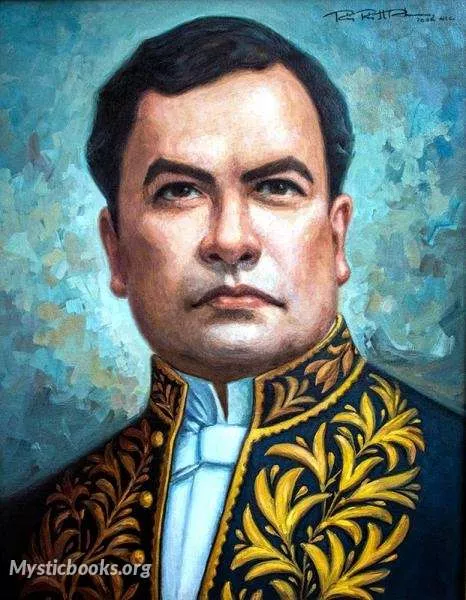
Timeline
Title
Country/Nationality
Ruben Darío
Félix Rubén García Sarmiento known as Rubén Darío was a Nicaraguan poet who initiated the Spanish-American literary movement known as modernismo (modernism) that flourished at the end of the 19th century. Darío has had a great and lasting influence on 20th-century Spanish literature and journalism. He has been praised as the "Prince of Castilian Letters" and undisputed father of the modernismo literary movement.
Rubén Darío was born in Metapa, Matagalpa, Nicaragua. Although, according to his baptism, Rubén's true surname was García, his paternal family had been known by the surname Darío for many years. Rubén Darío explained it as follows in his autobiography:
According to what some of the old people in that town of my childhood have referred to me, my great-grandfather had Darío as his nickname or first name. In this small town he was known by everyone as "Don Darío" and his entire family as the Daríos. It was in this way that his and all his family last name began to disappear to the point where my paternal great-grandmother already replaced it when she signed documents as Rita Darío; becoming patronymic and acquiring legal stand and validity since my father, who was a merchant, carried out all his businesses as Manuel Darío...
After making a name for himself with love poems and stories, Darío left Nicaragua for Chile in 1886, and disembarked in Valparaiso on June 23, 1886. In Chile he stayed with Eduardo Poirier and a poet by the name of Eduardo de la Barra, together they co-authored a sentimental novel titled Emelina, with which they entered in a literary contest (although they did not win). It was because of his friendship with Poirier that Darío was able to obtain a job in the newspaper La Época, in Santiago in July 1886.
In 1892, he left his family in Costa Rica, and traveled to Guatemala and Nicaragua, in search for better economic prospects. Eventually, the Nicaraguan government named him a member of the Nicaraguan delegation to Madrid, where events were going to take place to commemorate the fourth centennial of the discovery of America. During the trip to Spain, Darío made a stop in Havana, where he met Julián del Casal and other artists, such as Aniceto Valdivia and Raoul Cay. On August 14, 1892, he disembarked in Santander, where he continued his journey to Madrid via train. Among those with whom he interacted frequently were poets Gaspar Núñez de Arce, José Zorrilla and Salvador Rueda; novelists Juan Valera and Emilia Pardo Bazán; erudite Marcelino Menéndez Pelayo; and several distinguished politicians such as Emilio Castelar and Antonio Cánovas del Castillo. In November, he returned to Nicaragua, where he received a telegram from San Salvador notifying him of his wife's illness; she died on January 23, 1893.
Darío died on February 6, 1916, aged 49, in León. The funeral lasted several days, and he was interred in the city's cathedral on February 13, 1973, at the base of the statue of Saint Paul near the chancel under a lion made of marble by the sculptor Jorge Navas Cordonero.
Books by Ruben Darío
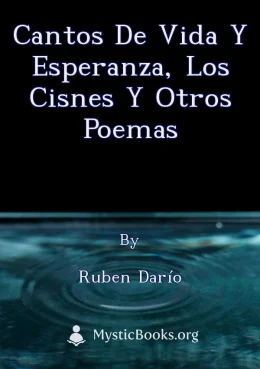
Cantos de Vida y Esperanza, los Cisnes y Otros Poemas
Cantos de Vida y Esperanza is a collection of poems by Nicaraguan poet Rubén Darío, published in 1905. The collection is considered a landmark in Spanish-language literature and is widely regarded as one of the most important works of the modernist m...
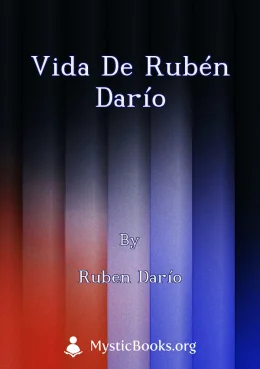
vida de Rubén Darío
Vida de Rubén Darío is a compelling memoir written by the acclaimed Nicaraguan poet himself. In this book, Darío takes us on a captivating journey through his life, starting from his childhood to the pinnacle of his literary career. He paints a vivid...
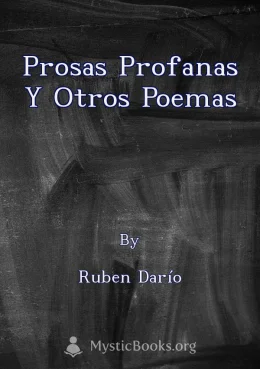
Prosas Profanas Y Otros Poemas
Prosas Profanas is a collection of poems by Rubén Darío, first published in 1896. The poems are characterized by their use of rich language, exotic imagery, and musicality. They explore themes of love, beauty, nature, and the human condition. Prosas...
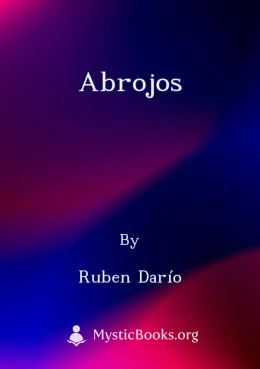
Abrojos
“Abrojos” is a collection of early poems by Rubén Darío, published in Santiago de Chile in 1887. It showcases Darío's early style, marked by romanticism and symbolism, and explores themes of love, nature, and the human condition. The collection refle...
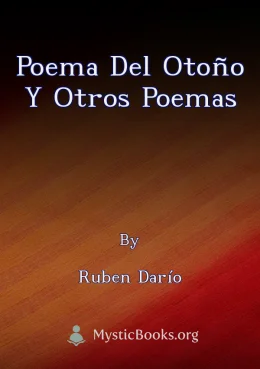
Poema del otoño y otros poemas
“Poema del otoño y otros poemas” por Rubén Darío es una colección de poemas que explora temas de amor, naturaleza, muerte, el paso del tiempo y la espiritualidad. A través de versos evocadores, Darío explora la belleza y la melancolía del otoño, uti...